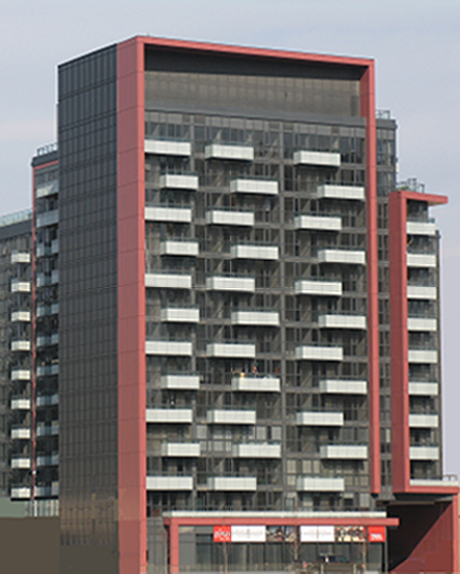Heat Soaked Glass



The heat-soaking process is a method that reduces the incidence of spontaneous breakage in tempered glass caused by nickel sulphide. In order to understand the heat-soaking process, it is important to understand how these inclusions are formed and can contribute to breakage.
Float glass is manufactured by combining sand, soda ash, limestone, dolomite, salt cake and other ingredients into a furnace heated to a temperature slightly above 1500°C. The molten glass is fed into a tin bath where it literally floats on top of a layer of molten tin. As the glass flows along the tin surface, it enters an annealing lehr, where the rate of cooling is controlled to reduce residual stresses within the glass.
During the manufacturing process, undissolved particles may form within the glass. For the most part, these are aesthetic inclusions and are clearly visible. Glass containing these inclusions is removed and discarded from the production run.
Float manufacturers take every precaution possible to reduce the number of inclusions but unfortunately not all inclusions are visible, the most problematic being nickel sulphide. Nickel sulphide inclusions are formed when a minute nickel-rich particle mixes with sulphur during the melting process. These inclusions tend to be smaller than 0.3 mm and are not easily visible. It is estimated that in a normal glass production run, nickel sulphide inclusions occur at a rate of one per eight tonnes of raw glass produced. Nickel sulphide is impossible to eliminate and all glass has some present.
The nickel-sulphide-related spontaneous breakage of annealed or heat-strengthened glass is highly unlikely do to the very low stresses in annealed glass, and the controlled stresses in heat strengthened glass.
In tempered glass, the heated glass is cooled at a much higher rate to achieve the required internal tensile and surface compression stresses. Because of this high cooling rate, inclusions do not have time to return to their original state but remain in a high-temperature state within the glass. Over time, these inclusions will return to their low-temperature state and in the process they increase in volume, causing additional stresses within and eventually creating spontaneous breakage.
Heat soaking is a process in which tempered glass is subjected to a temperature of 290°C for several hours in a heat-soaking oven. During this time, the nickel sulphide inclusions undergo a phase change and reverse back to its original low-temperature state (i.e. the inclusions expand in volume). If these inclusions are near the central tension core of the glass, the change in volume will generate sufficient stress to break the glass.
It is estimated that up to 95% of nickel sulphide-contaminated panes of glass are usually destroyed by this process, reducing the chance of on-site spontaneous breakage.
Our heat-soaking process conforms to DIN EN 14179-1 for monolithic flat thermally toughened safety glass for use in buildings.


